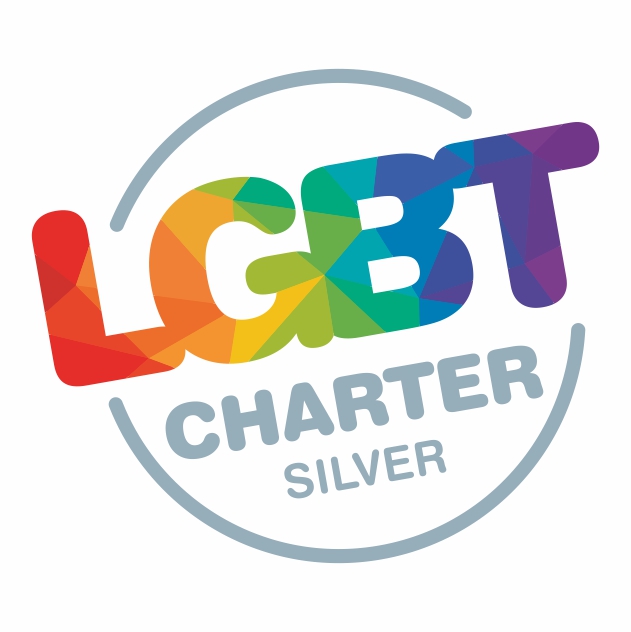Welcome to Health and Food Technology
Staff
- Mr S Odger (Faculty Head)
- Mrs D Smyth
- Miss C Hughes
- Miss N Reilly
- Mrs S Cunningham
- Mrs A Dockrell (H.F.T. Technician)
Why choose Health and Food Technology?
S3 Health and Food Technology
Outline of Course
Health and Food Technology course focuses on health, the influence of food and its nutritional properties, and the dietary needs of individuals. It also focuses on the application of safe, hygienic and informed practices in basic food preparation to help meet individuals’ needs. Additionally the course also covers Food Product Development, where the pupils will be given a design challenge which they must research, make and evaluate.
The course encourages learners to make informed decisions about food, nutrition and dietary needs and to experience challenge and enjoyment in a range of practical food and consumer contexts.
The three main units covered in the course are: Food for Health, Food Product Development and Contemporary Food Issues. This will be covered by a combination of theory work and practical experiences.
Possible Careers using the Qualification
Possible career areas using this qualification include:
- Hospitality and catering industry
- Dietetics
- Food scientist or technologist
- Personal trainer/Sports Coaching
- Teacher (for example Health and Food, Physical Education, primary teaching)
- Health sector (nursing, medicine, dentistry)
- Food product development
Please note, as with the discrete Science subjects, pupils should be allowed to pick both the Practical Cookery course and Health and Food Technology in S3 / S4. This should be in consultation with staff in the Health and Food Technology Department.
S3 Practical Cookery
Outline of course
The S3 course is a skills-based practical subject. However, there is a large portion of written work.
The course consists of 3 units:
- Cookery Skills, Techniques and Processes
- Understanding and Using Ingredients
- Organisational Skill for Cooking
For each unit pupils must complete an assessed dish, as well as a written theory test.
Pupils must also take part in 2 different two course assessments over the year and will be expected to complete a written assignment on each of these (where they write a time plan and evaluate the dishes).
Possible careers
Health and Food Teacher, Primary Teaching, Consumer Advice, Child Development, Marketing, Catering, Hospitality, Social Care, Restaurant/Hotel Chef, Food Service, Food preparation, Food Manufacturing, Baking and Confectionary.
Please note, as with the discrete Science subjects, pupils should be allowed to pick both the Practical Cookery course and Health and Food Technology in S3 / S4. This should be in consultation with staff in the Health and Food Technology Department.
National 4/5 Practical Cookery
The S4 course consists of 3 units:
- Cookery skills
- Techniques and processes
- Understanding and using ingredients
Each unit they must complete an assessed dish on as well as a written theory test.
They also must take part in 2 different two course assessments over the year which they will be expected to do an assignment on (where they plan the dishes including writing a time plan).
Assessment and progression
At National 5, the final assessment for Practical Cookery has three parts:
- Assessment 1: Worth 13% of their total grade. A written assignment that consists of an equipment list, a detailed timeplan and service details. They have 1 hour and 45 minutes to complete this exam. They are given three courses (starter, Main (sometimes a side), and dessert) by SQA that they must plan.
- Assessment 2: Worth 62% of their total grade. A 2 hours and 30 minute practical cooking exam. They must make the same three dishes as the planning assignment to complete in this time in one sitting.
- Assessment 3: Worth 25% of their total grade. A written 30 mark question paper which they have an hour to complete.
At National 4, pupils must complete three unit booklets and four dishes that accompany each booklet.
They must complete an Added Value Booklet, in which they plan a two course meal. They also must complete cooking the two course meal in an hour and 30 minutes.
For National 5, Candidates at N5 need to be able to stand for 2 hours and 30 mins and complete a three course meal to a service standard. They need to be able to understand the difference between vegetable cuts and cookery terms (such as sweat/sauté). They need to be able to finely prepare ingredients unaided and be confident whilst in the kitchen and adhering to health and safety regulations.
Pupils at this level need to be organised and able to organise their own cookery workspace.
For National 4: As above, however there is no timeplan assessment at National 4, the units still need a moderate amount of written detail and pupils still need to show skills such as knowing the difference between dicing, slicing, chopping etc. Pupils will also need to prepare all of their dishes unaided whilst adhering to health and safety regulations.
Extra information
The Practical cookery grading bands are very high, one of the highest of all subjects. Last year (May 2019), you had to achieve a total percentage of 94% to get an upper A; 77% to gain an A; 67% to get a B; 57% to get a C; and 47% to get a D.
After completing the N4 some pupils are able to progress to National 5. The National 5 course is not appropriate for all candidates sitting National 4.
National 5 pupils can go on to college courses to further study the subject.
Possible careers
Health and Food Teacher, Primary Teaching, Consumer Advice, Child Development, Marketing, Catering, Hospitality, Social Care, Restaurant/Hotel Chef, Food Service, Food preparation, Food Manufacturing, Baking and Confectionary.
Please note, as with the discrete Science subjects, pupils should be allowed to pick both the Practical Cookery course and Health and Food Technology in S3 / S4. This should be in consultation with staff in the Health and Food Technology Department.
National 4/5 Health and Food Technology
-
Outline of Course
Health and Food Technology course focuses on health, the influence of food and its nutritional properties, and the dietary needs of individuals. It also focuses on the application of safe, hygienic and informed practices in basic food preparation to help meet individuals’ needs. Additionally the course also covers Food Product Development, where the pupils will be given a design challenge which they must research, make and evaluate.
The course encourages learners to make informed decisions about food, nutrition and dietary needs and to experience challenge and enjoyment in a range of practical food and consumer contexts.
The three main units covered in the course are: Food for Health, Food Product Development and Contemporary Food Issues. This will be covered by a combination of theory work and practical experiences.
Assessment and Progression
All units will be assessed internally through written assessments throughout each unit and at the end of each unit in preparation for the National 5 Health and Food Technology Assessment, which consists of 50% written assessment and 50% examination.
This course or its units may provide progression to:
- National 4/5 Health and Food Technology course or relevant component units
- Other qualifications in related areas such as Health and Food Technology or related areas
- Further study, employment and/or training
Suitable candidates
- The course will attract learners who have an interest in health, food and consumer issues.
- This course enables learners to develop routine problem-solving skills through a practical and experiential approach to learning and assessment. Therefore it is vital that appropriate candidates have a good grasp of English.
- Pupils must be confident in preparing practical dishes independently.
Higher Health and Food Technology
Outline of Course
Food for Health – Pupils will learn to describe the relationship between health, food and nutrition and make food products to meet dietary and health needs.
Contemporary Food Issues – Pupils will learn to describe consumer food choices and make food products, which address factors affecting food choices.
Food Product Development –. Pupils will learn to describe how food products are developed and will develop food products to meet specific needs. Pupils will prepare dishes using a variety of functional ingredients in. Pupils will also look at the importance of hygiene procedures in relation to food production.








